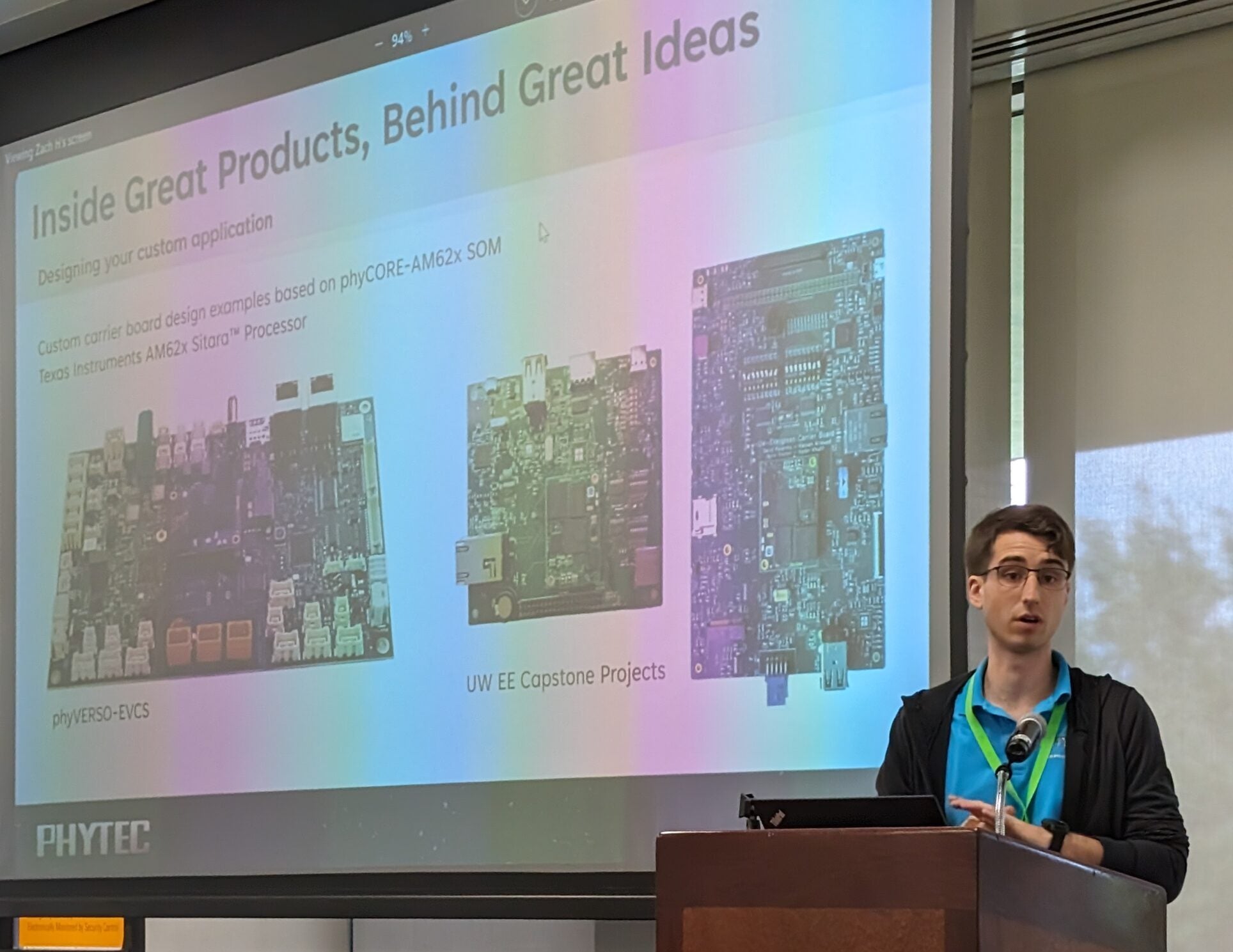Open EV Charging Summit Recap and Video: Hardware Design Considerations for EV Charging
The recent Open EV Charging Summit 2024 featured a presentation by Zachary Hudson of PHYTEC, focusing on “Hardware Design Considerations for EV Charging” (video follows below). Hudson, a hardware specialist in a room filled with software professionals, emphasized the critical intersection of hardware and software in EV charging systems. Here are the key takeaways from his talk:
Integrating Software and Hardware Design
Hudson underscored the necessity of designing hardware with software integration in mind. This approach not only simplifies development but also eases troubleshooting later in the lifecycle. By considering drivers and system requirements early on, hardware engineers can significantly reduce potential pain points for software developers.
Essential Components for EV Chargers
EV chargers rely on several crucial components, and Hudson highlighted the key elements necessary for an effective design:
- Processors and Power Systems: Starting with a robust processor core, such as the TI AM62x processor on a PHYTEC SOM, is essential. Ensuring reliable power, DDR memory for operation, and flash storage for booting is vital.
- Connectivity: Hudson emphasized the importance of various connectivity options like Ethernet, LTE, Bluetooth, and Wi-Fi. Using pre-certified modules for wireless communication can streamline development and certification processes.
Importance of Boot and Debugging Systems
A robust boot and debugging system is critical for the smooth operation of EV chargers. Hudson recommended using SD cards for initial development due to their ease of replacement. Consistent debug interfaces and heartbeat LEDs are essential for system status indication and troubleshooting.
Effective Thermal Management
Thermal management is often overlooked but is crucial for the longevity and reliability of EV charging systems, especially in outdoor environments. Hudson suggested using heat sinks, heat spreaders, and leveraging the metal enclosure of the system to dissipate heat effectively. Proper thermal planning ensures that components do not overheat and fail, particularly under harsh conditions.
Reusable Reference Designs
Hudson advocated for the use of proven, reusable reference designs to expedite development and enhance reliability. PHYTEC provides reference designs and resources that have been demonstrated to work effectively, encouraging developers to build on these foundations rather than starting from scratch. This approach not only accelerates time-to-market but also ensures a higher degree of reliability.
By emphasizing the integration of software and hardware design, ensuring robust boot and debugging systems, effective thermal management, and the use of reusable reference designs, Hudson provided a comprehensive guide for developing reliable and efficient EV charging solutions. As the EV market continues to grow, these considerations will be crucial for developing the next generation of charging infrastructure.
